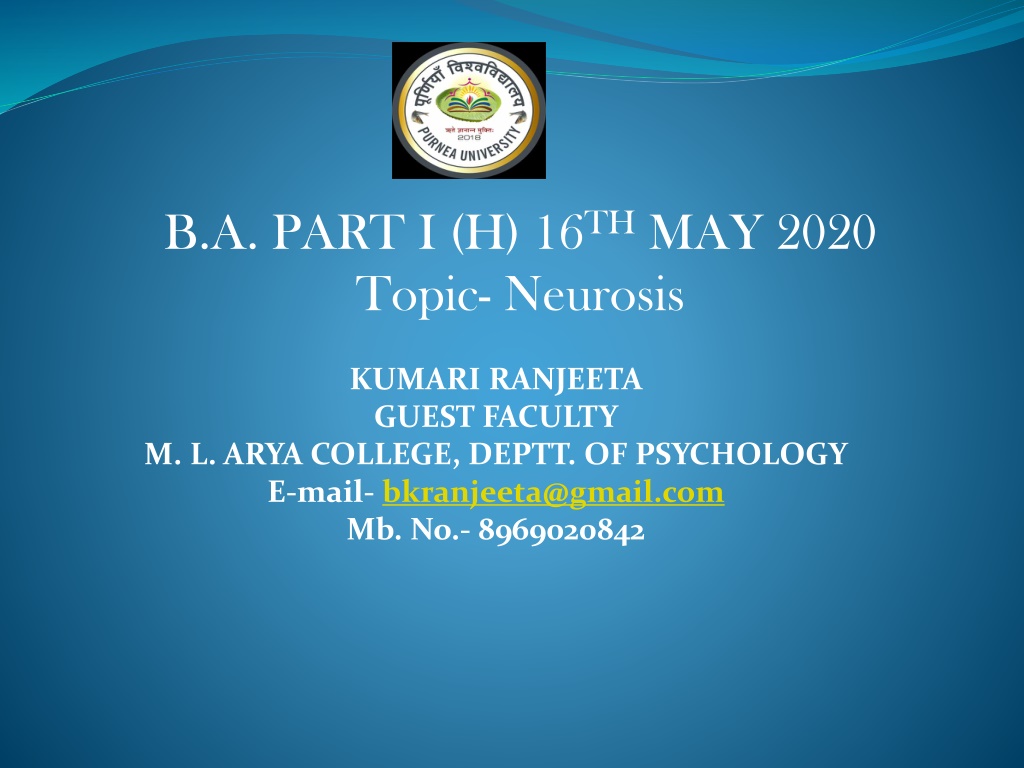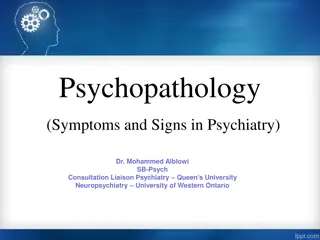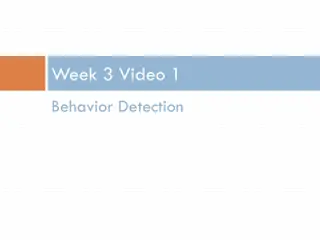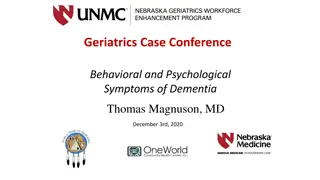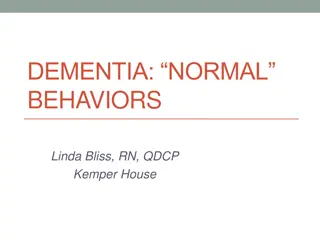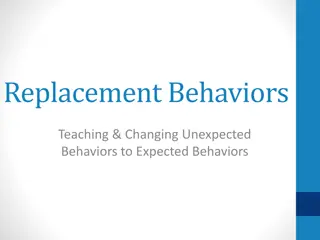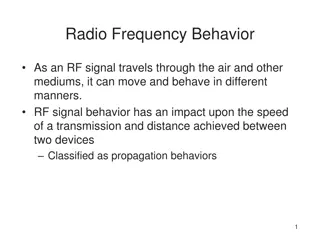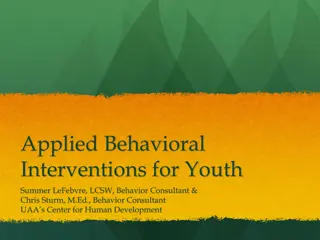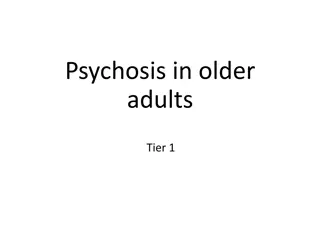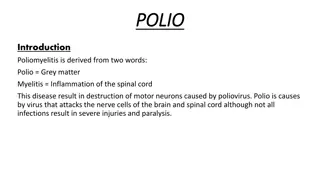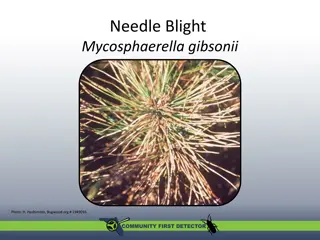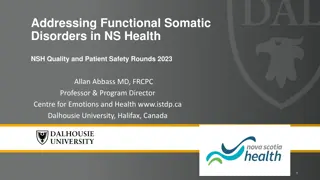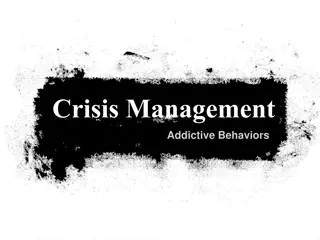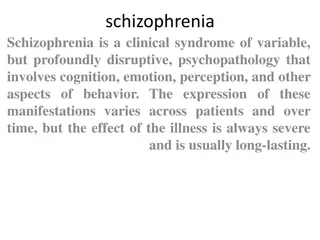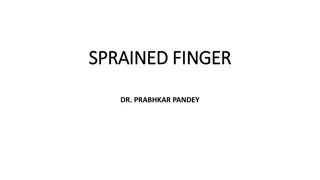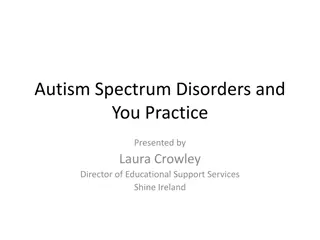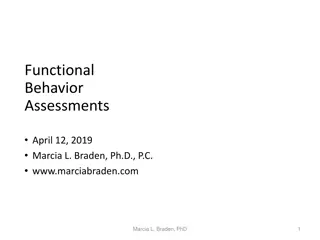Understanding Neurosis: Symptoms, Behaviors, and Impact
Neuroses are characterized by anxiety, depression, and distress disproportionate to life circumstances. Common traits include complaining, stressing over trivial matters, perfectionism, and dependency. Symptoms of neurotic behavior include irritability, physical complaints with no medical cause, road rage, and excessive anxiety about a child's safety. Recognizing neurotic behaviors can help in understanding and managing these challenges effectively.
Download Presentation

Please find below an Image/Link to download the presentation.
The content on the website is provided AS IS for your information and personal use only. It may not be sold, licensed, or shared on other websites without obtaining consent from the author. Download presentation by click this link. If you encounter any issues during the download, it is possible that the publisher has removed the file from their server.
E N D
Presentation Transcript
B.A. PART I (H) 16TH MAY 2020 Topic- Neurosis KUMARI RANJEETA GUEST FACULTY M. L. ARYA COLLEGE, DEPTT. OF PSYCHOLOGY E-mail- bkranjeeta@gmail.com Mb. No.- 8969020842
16 MAY 2020 B.A. PART I (H) PAPER III, UNIT II (SYMPTOMS DISORDER) GENERAL SYMPTOMS OF NEUROSIS I Neuroses are characterized by anxiety, depression, or other feelings of unhappiness or distress that are out of proportion to the circumstances of a person's life. Neuroses, or psychoneuroses, are less-serious disorders in which people may experience negative feelings. It s quite common for most people to display neurotic behavior without even knowing they do it. But the people that spend time with them daily pick up on their symptoms of neurosis over time.
16 MAY 2020 B.A. PART I (H) PAPER III, UNIT II (SYMPTOMS DISORDER) Some common traits of neurotic people: Complaining about physical symptoms when none exist Stressing over little things Ruminating, or having obsessive thoughts Constant need for perfection Being overly needy or dependent on another person or other people Can t effectively manage basic needs Exhibiting Drama Queen behavior Bouts of Road Rage
16 MAY 2020 B.A. PART I (H) PAPER III, UNIT II (SYMPTOMS DISORDER) Envying other people Difficulties with relationships Obsessing over a child s health or safety SYMPTOMS OF NEUROTIC BEHAVIOUR: 1. General Irritability The proverbial crabby neighbor is displaying neurotic behavior when they routinely complain about minor issues. When they're constantly nagging you to be quiet, to stay away from their property line, or to keep your kids off their sidewalk, they may be showing you their neurotic side.
16 MAY 2020 B.A. PART I (H) PAPER III, UNIT II (SYMPTOMS DISORDER) 2. Complaining About Physical Symptoms Without A Medical Cause: Plenty of neurotic behavior comes in the form of mysterious complaints about physical symptoms that have no medical cause. When someone with no diagnosable illness talks a lot about their bodily symptoms, they annoy others. Their relationships may suffer from their neuroticism. 3. Road Rage: People with road rage are displaying neurotic behavior. After all, people make mistakes while driving. Some of them end in wrecks, but more often than not, they correct themselves and get back to driving well enough. Over the top anger at minor mistakes is a clear sign of neurotic behavior.
16 MAY 2020 B.A. PART I (H) PAPER III, UNIT II (SYMPTOMS DISORDER) 4. Anxiety About Your Child's Safety Parental neuroses over the common risks children take can result in "helicopter parenting." Though they may be well intentioned, these parents do not create the conditions for a normal childhood. The parents' obsession with safety results in miserable, anxious, and self-conscious children. 5. Being Overly Aware of Psychological Problems Ironically, people can know full well that they're displaying neurotic symptoms, but they still behave that way anyway. Being obsessed with their mental health can make their problems even worse. Of course, if you are troubled by serious symptoms, it's important to seek help. Even then, you don't have to analyze yourself at every turn.
16 MAY 2020 B.A. PART I (H) PAPER III, UNIT II (SYMPTOMS DISORDER) 6. Emotional Distress Over Everyday Events: It's perfectly normal to be upset when bad things happen, but it's unreasonable to get upset over something minor. Breaking a fingernail, spilling your breakfast cereal, or being ten minutes late to meet a friend are all examples of common problems. There's no need for something minor to ruin your day. 7. Guilty Behavior: People who are prone to neurotic behavior often show signs that they're feeling excessively guilty over things that aren't their fault. Or they behave guiltily when what they've done is so minor that no one even noticed it. They may apologize profusely or avoid eye contact because of this guilt.
16 MAY 2020 B.A. PART I (H) PAPER III, UNIT II (SYMPTOMS DISORDER) 8. Obsessive Thinking or Ruminating: Obsessive thinking is not only neurotic behavior, but it can also lead to depression. When you often ruminate about things you should have done differently or about minor problems in your life, other types of neurotic behavior can follow. 9. Perfectionism: Most people want to do well in whatever they do. There's a difference between that and feeling you must do everything perfectly. People who are perfectionists usually spend more time than necessary completing tasks because they're determined to avoid making a mistake.
16 MAY 2020 B.A. PART I (H) PAPER III, UNIT II (SYMPTOMS DISORDER) 10. Dependency: Being too dependent on others to meet your daily needs can cause a variety of neurotic behaviors. For example, rather than doing something for yourself, you whine about your problems hoping someone else will solve them. You wait for others to do things for you when you could be taking care of your own needs. You become clingy and, at the same time, irresponsible. CONTINUE IN NEXT CLASS
